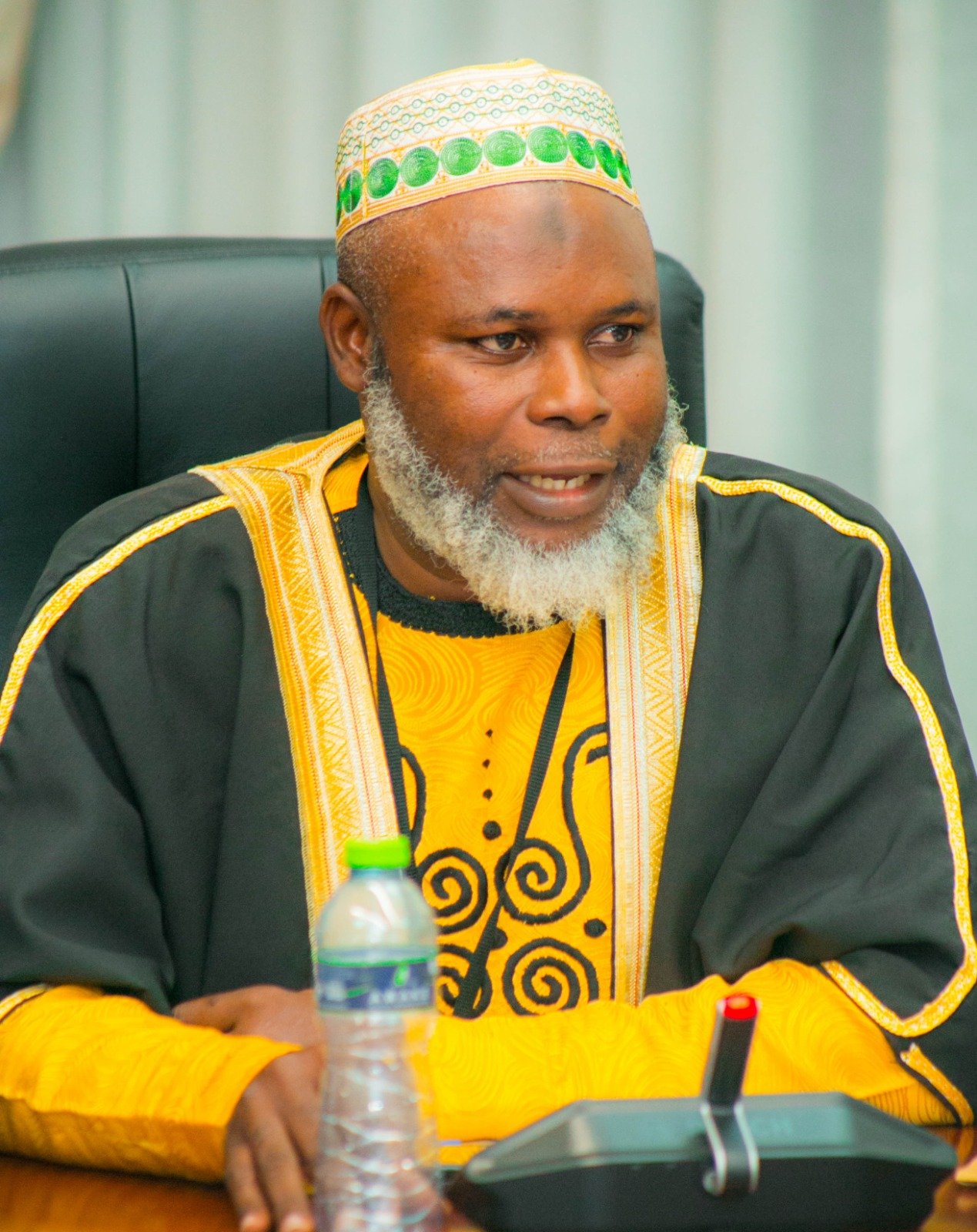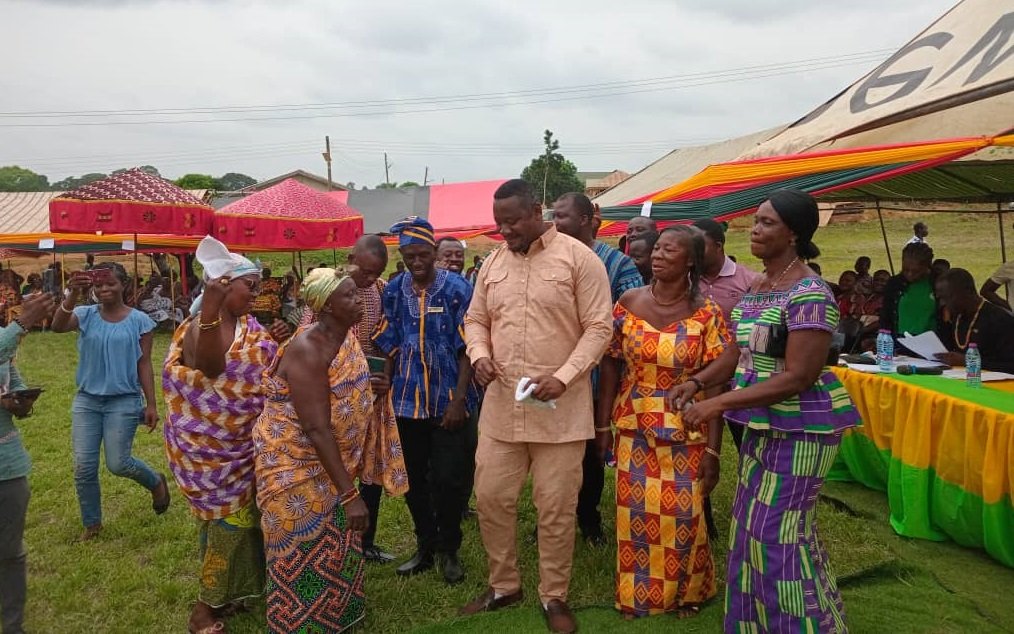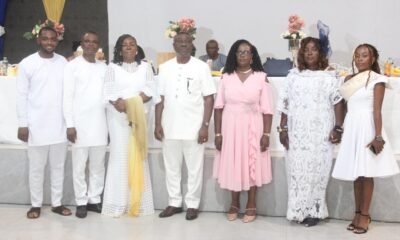Fruitful Living
Contributions for the tabernacle/temple
Remember this: Whoever sows sparingly will also reap sparingly, and whoever sows generously will also reap generously. – 2 Corinthians 9:6.
INTRODUCTION
Under God’s instructions, Moses asked the people of Israel to contribute towards the building of the Tabernacle. They were to give various items. God did not require these special offerings. Only those who were willing to give were invited to participate. Those whose hearts were stirred gave willingly to the Tabernacle. With great enthusiasm they gave because they knew how important their giving was to the completion of God’s house.
It is instructive to note here that from God’s point of view, worshipping Him is to come first; attending to the things of God is to be a priority for those in covenant relationship with Him. It is, in essence, the same thing Jesus said in the Sermon on the Mount when He taught us to seek first the kingdom of God and His righteousness and then all the necessary things of life would be added to us.
Many Christians today seek their own needs first and only look to the needs of the Kingdom of God after they feel they have satisfied their own needs and wants. We put ourselves first and the things of God are secondary. But in God’s economy, we are to seek first His kingdom. It was that way in Exodus and for those who are right with Him, it is still that way today.
MATERIALS FOR THE TABERNACLE
Then Moses said to the whole community of Israel, “This is what the Lord has commanded: Take a sacred offering for the Lord. Let those with generous hearts present the following gifts to the Lord: gold, silver, and bronze; blue, purple, and scarlet thread; fine linen and goat hair for cloth; tanned ram skins and fine goatskin leather; acacia wood; olive oil for the lamps; spices for the anointing oil and the fragrant incense; onyx stones, and other gemstones to be set in the ephod and the priest’s chestpiece.
“Come, all of you who are gifted craftsmen. Construct everything that the Lord has commanded: the Tabernacle and its sacred tent, its covering, clasps, frames, crossbars, posts, and bases; the Ark and its carrying poles; the Ark’s cover—the place of atonement; the inner curtain to shield the Ark; the table, its carrying poles, and all its utensils; the Bread of the Presence; for light, the lampstand, its accessories, the lamp cups, and the olive oil for lighting; the incense altar and its carrying poles; the anointing oil and fragrant incense; the curtain for the entrance of the Tabernacle; the altar of burnt offering; the bronze grating of the altar and its carrying poles and utensils; the washbasin with its stand; the curtains for the walls of the courtyard; the posts and their bases; the curtain for the entrance to the courtyard; the tent pegs of the Tabernacle and courtyard and their ropes; the beautifully stitched garments for the priests to wear while ministering in the Holy Place—the sacred garments for Aaron the priest, and the garments for his sons to wear as they minister as priests.”
So the whole community of Israel left Moses and returned to their tents. All whose hearts were stirred and whose spirits were moved came and brought their sacred offerings to the Lord. They brought all the materials needed for the Tabernacle, for the performance of its rituals, and for the sacred garments. Both men and women came, all whose hearts were willing. They brought to the Lord their offerings of gold—brooches, earrings, rings from their fingers, and necklaces. They presented gold objects of every kind as a special offering to the Lord. All those who owned the following items willingly brought them: blue, purple, and scarlet thread; fine linen and goat hair for cloth; and tanned ram skins and fine goatskin leather. And all who had silver and bronze objects gave them as a sacred offering to the Lord. And those who had acacia wood brought it for use in the project.
All the women who were skilled in sewing and spinning prepared blue, purple, and scarlet thread, and fine linen cloth. All the women who were willing used their skills to spin the goat hair into yarn. The leaders brought onyx stones and the special gemstones to be set in the ephod and the priest’s chestpiece. They also brought spices and olive oil for the light, the anointing oil, and the fragrant incense. So the people of Israel—every man and woman who was eager to help in the work the Lord had given them through Moses—brought their gifts and gave them freely to the Lord. – Exodus 35:4-29.
GIFTS FOR BUILDING THE TEMPLE
The work ahead of him is enormous, for the Temple he will build is not for mere mortals—it is for the Lord God himself! Using every resource at my command, I have gathered as much as I could for building the Temple of my God. Now there is enough gold, silver, bronze, iron, and wood, as well as great quantities of onyx, other precious stones, costly jewels, and all kinds of fine stone and marble.
“And now, because of my devotion to the Temple of my God, I am giving all of my own private treasures of gold and silver to help in the construction. This is in addition to the building materials I have already collected for his holy Temple. I am donating more than 112 tons of gold from Ophir and 262 tons of refined silverto be used for overlaying the walls of the buildings and for the other gold and silver work to be done by the craftsmen. Now then, who will follow my example and give offerings to the Lord today?”
Then the family leaders, the leaders of the tribes of Israel, the generals and captains of the army, and the king’s administrative officers all gave willingly. For the construction of the Temple of God, they gave about 188 tons of gold, 10,000 gold coins, 375 tons of silver, 675 tons of bronze, and 3,750 tons of iron. They also contributed numerous precious stones, which were deposited in the treasury of the house of the Lord under the care of Jehiel, a descendant of Gershon. The people rejoiced over the offerings, for they had given freely and wholeheartedly to the Lord, and King David was filled with joy. – 1 Chronicles 29:1b-9
The tabernacle was the dwelling place of God before the temple was built by Solomon. It was the place where sacrifices were made, where the Ark of the Covenant was kept, and it was a place of worship, a place which was constructed according to the purposes and instructions of God.
David gave from his personal fortune to the temple. Like David, we can acknowledge that all we have comes from God.
God loves people who give cheerfully. Our giving should be from love and generosity, not from guilty conscience. Let’s learn the joy of giving wholeheartedly to God. Following God’s instructions must be our top priority as we do His work and accept His plans. But it also reveals how God equips and enables His people to participate in His purposes. Every one of us has been given special abilities and we are responsible to develop these abilities and to use them for God’s glory. We must work on our abilities and skills that could help our church or community. When we are generous because we are thankful, our attitude can inspire others.
We may not have David’s wealth, but we can develop his willingness to give. It is not what we have that counts with God, but our willingness to give it. We need to display a right attitude when giving towards God’s work.
This attitude is described by Paul in 2 Corinthians 9:7: “You must each decide in your heart how much to give. And don’t give reluctantly or in response to pressure. “For God loves a person who gives cheerfully.”
1 CHRONICLES CHAPTER 29 gives us a picture of the proper attitude a person must have when giving himself or herself to the work of God’s kingdom (His plans and purposes on earth, which have eternal significance).
- We must delight in and be devoted to God’s kingdom.
- We must be willing to keep our lives and possessions for God’s use and His purposes.
- Take joy in giving with true and wholehearted devotion.
- Recognise that all we have properly gained has come from God.
- Be humble and thankful for the privilege of having a part in God’s eternal purposes.
- Have proper motives for giving that reflect a sincere heart and a righteous life.
- Pray that God would continue to guide us as we strive to be faithful to Him and His cause on earth.
Stay blessed!
For further inquiries please contact us on Tel Nos. 0302-772013 or 0268130615
Email: saltnlightministries@gmail.com
Website: saltandlightgh.org
Fruitful Living
Institution of Marriage in Islam (Pt.3)

Regarding sexual intimacy, it is also prohibited for a wife to demand money or gifts before allowing her husband to engage in sexual relations. Islam views this as a form of exploitation and sin. A marital relationship must be based on mutual love, respect, and affection rather than material gain.
Prohibition of sexual intercourse during menstruation
Islam has clear guidelines regarding sexual relations during certain times, particularly when a woman is menstruating. The Qur’an prohibits sexual intercourse during menstruation, stating:
“And they ask you about menstruation. Say: ‘It is harm, so keep away from women during menstruation. And do not approach them until they are pure. And when they have purified themselves, then come to them from where Allah has ordained for you. Indeed, Allah loves those who are constantly repentant and loves those who purify themselves’” (Qur’an 2:222).
This verse emphasises the importance of refraining from sexual activity during menstruation due to physical and spiritual reasons. However, all other forms of affection and companionship are allowed, and husbands should continue to care for their wives during this time with love and respect.
Islamic law encourages cleanliness and personal hygiene, especially in matters related to physical intimacy. After the menstruation period ends, it is recommended that the wife perform ghusl (ritual purification) before resuming sexual relations with her husband.
Rights of Children on Parents
Islam emphasises the rights of children on their parents, as marriage is the foundation of family life. Parents are obligated to provide their children with proper care, education, and moral guidance. The Qur’an states: “O you who have believed, protect yourselves and your families from a Fire whose fuel is people and stones…” (Qur’an 66:6).
This highlights the parents’ responsibility to raise their children with a strong sense of morality and faith. Children have the right to a good name, religious upbringing, and education, and they must be treated with fairness and love.
In Ghana’s law, there is Children’s Right Act, Act 560 (1989) which states among other things,
• Section 4, Right to Name, Nationality and secure a Birth Certificate for the child
• Section 6(3) (a&b), protection from neglect, provide good guidance, care etc
• Section 8(1&2), Right to education and wellbeing (medical care, diet, clothing, shelter).
How Do Married Couples Resolve Their Differences in Islam?
Islam provides clear guidelines for resolving marital conflicts in a just and compassionate manner.
The Qur’an instructs that in the event of marital discord, both parties should seek reconciliation:
“If you fear dissension between the two, send an arbitrator from his people and an arbitrator from her people. If they both desire reconciliation, Allah will cause it between them” (Qur’an 4:35).
The goal is always to preserve the marriage and restore harmony. If reconciliation is not possible, Islam permits divorce as a last resort, but it is considered the most disliked permissible act in the eyes of Allah (SWT).
Rewards of Marriage in Islam
Marriage in Islam is not only a social institution but also an act of worship that brings great rewards. The Prophet Muhammad (PBUH) said: “When a man marries, he has fulfilled half of his religion, so let him fear Allah regarding the remaining half” (Bayhaqi, Shu’ab al-Iman).
Married couples are rewarded for fulfilling their marital responsibilities, showing kindness to each other, and raising righteous children who contribute positively to society.
Scholarly Thoughts About Marriage in Islam
Islamic scholars, such as Imam Al-Ghazali, have discussed marriage as a means of controlling desires and fulfilling one’s spiritual obligations. Modern scholars like Sheikh Yusuf Qaradawi also stress the importance of mutual respect and understanding in marriage, ensuring that both partners can grow spiritually and emotionally within the marriage.
Conclusion
In conclusion, marriage in Islam is a divinely ordained relationship based on mutual love, respect, and responsibility. By following the guidance of the Qur’an and Sunnah, and observing the legal frameworks in place, such as Ghana’s Mohammedan Ordinance, we can establish strong and harmonious marriages that contribute to the moral and spiritual development of society. May Allah (SWT) guide us to fulfill our marital responsibilities with sincerity and love.
The Writer is Kpone Katamanso Municipal Chief Imam, Democracy and Governance Law Student, UCC, Member of Ghana National Association of Certified Counsellors Certified by Ghana Psychology Council
References:
1.Qur’an, Surah Ar-Rum (30:21)
2.Qur’an, Surah An-Nisa (4:34, 4:4, 4:19, 4:35)
3.Qur’an, Surah Al-Baqarah (2:187, 2:221, 2:222, 2:223)
4.Qur’an, Surah At-Tahrim (66:6)
5.Ibn Majah, Hadith 1845, 1905
6.Tirmidhi, Hadith 1162, 1084
7.Bukhari, Hadith 5090
8.Children’s Right Act, Act 560 (1989)
9.Bayhaqi, Shu’ab al-Iman
10.Al-Ghazali, Ihya Ulum al-Din
11.Qaradawi, The Lawful and Prohibited in Islam
Fruitful Living
Adansi North DCE marks birthday on Farmers’ Day

It was a momentous day for the Adansi North District Chief Executive, Eric Kwaku Kusi, last Friday November 8, as the 40th National Farmers Day district level celebration held here at Adansi Adokwai coincidentally fell on his birthday.
On a low-key, Mr Kusi momentarily took to the floor, to exhibit his dancing skills responding to cheers of “Happy Birthday to you” from the audience, to which he also responded with a gesture of thanks and praises to God, as he stepped out to address the gathering.
He was joined on the dancing floor by the assembly members singing praises to God for the life of their indefatigable DCE.
In his address, Mr Kusi commended farmers in the Adansi North and the country as a whole “who tirelessly cultivate the land to feed all of us in our communities.”
He said the government realising the important role agriculture played in the economy and the challenges facing farmers due to the effects of climate change was rolling out initiatives and policies to support climate-resilient agriculture, including agriculture insurance programme for farmers.
In all 16 farmers were awarded various prizes for their contribution to food sufficiency in the country.
Francis Appiah, 41, who hails from Adokwai was adjudged the District Best Farmer for 2024, and took home a tricycle and other assorted items. The first runner-up prize went to Sakyi Kwabena also from Adokwai and the second runner-up went to Kwame Gyamera from Dompoase.
From Alhaji Salifu Abdul-Rahaman, Adansi Adokwai







